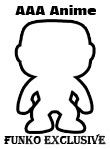Anime News
|
Say sayonara to blood and guts Date: 3/29/2005 |
|
Remakes of Japanese horror films like to play mind games BY JOHN ANDERSON No flesh-eating zombies? No razor-fingered maniacs? No hockey masks? How can these movies even call themselves horror flicks? Because they're scary. And while they're more spooky than splattery, more psychological than psycho, they're also making money. ? The recent crop of Japanese horror film remakes that are big-footing their way across the box office - with the hotly anticipated "Grudge 2" on the way - suggest that something entirely new may be in the air. And on the screen. Maybe it's a shift in the popcorn-flavored zeitgeist. Or an actual change in American filmgoers' tastes, signaled by "The Ring Two" and "The Grudge" - whose opening weekend grosses now rank in the all-time top 10 for horror movies. Could be. Subtle and far more cerebral in their impact than any jump-scare movie would dream of being, these remakes present American audiences with relatively sophisticated storylines, substituting psychological dread for slasher-film convention. The big winners of the genre so far - there are more to come - have been "The Ring" (2002) and this year's "Ring Two," based on the Japanese horror flicks "Ringu" (1998) and "Ringu 2 (1999), and "The Grudge" (2004), based on the Japanese "Ju-on" (2000). They pack the kind of narrative ambiguity to which Hollywood is commonly allergic, the kind that would have been anathema to the makers of such staple series as "Nightmare on Elm Street," "Friday the 13th" and "Halloween" - namely, the films that have defined Hollywood horror for the past three decades. What's driving the new interest? "Let me be honest: It was all about being frightened half to death by the movie," said Walter Parkes, who, with his wife, Laurie MacDonald, runs the DreamWorks motion picture division. It was Parkes who green-lit "The Ring," a remake of Hideo Nakata's "Ringu." "My kids were freaked out after seeing just a few minutes," he said, "so we bought the rights to it very, very quickly." The American appetite for remakes of scary Japanese movies cuts across teen/ gender lines. Parkes said the films also have an interactive quality. "It's very gratifying," he said, "to go to a screening of 'Ring Two' and see a bunch of teenagers, often girls, huddled together and watching the movie under their coats. It becomes a group experience, watching it. But also, afterward, you visit chat rooms online and realize people are speculating with great passion about the mysteries of the movie." Life and death Part of the resonance, particularly for young filmgoers, may come from the commentaries the movies seem to offer on modern life. For instance, "The Grudge" concerns people who pass along a curse (see: virus) that recalls the rash of vampire-metaphor films that erupted in the early '90s, when AIDS was first penetrating the cultural consciousness. "The Ring" movies, on the other hand, are a bit more pop: They're about a haunted videotape. Roy Lee is a Los Angeles-based producer who was instrumental in securing the rights for and remaking both "Ring" movies and "The Grudge"; his Vertigo Entertainment is also behind Walter ("The Motorcycle Diaries") Salles' upcoming Asian remake, "Dark Water." Lee said the current phenomenon, if that's what it is, is more about the films' quality than their lineage. "[The success] might also have to do with the fact that you have female heroes and ghosts," he said. "In these films, the innocent die as well as the guilty. In American films, you generally have to have done something bad to deserve to die." That the Japanese remakes have departed from that formula and still made tons of money has come as something of a surprise. Parkes said that, as much as he liked "Ringu," he didn't think it had monstrous commercial potential. "I don't think we ever anticipated it making $130 million, and $250 million worldwide," he said. "When you look at 'Ring Two' and the rest, it's not great stuff," said Marcus Hu, president of Strand Releasing in Los Angeles, which distributes many Asian films. "But at least it's something different." Even the increased interest in Japanese cartoons - anime and manga - can't quite account for these horror flicks' new success. "The anime films, I wouldn't say they were hits," said Paul Dergarabedian, president of L.A.-based Exhibitor Relations, which tracks box office numbers for the industry. "Innocence: Ghost in the Shell II" grossed a little less than $1.5 million in the United States. It's also likely that the original casts of "Ringu" and "Ju-on" might have fared less well in the remakes. "If you were to take those films and not put Sarah Michelle Gellar and Naomi Watts in them," Dergarabedian said, "I dare say they would not be the hits that they are." Hu of Strand Releasing said he thinks the current crop of horror is reminiscent of several '60-era Japanese creep shows. "When I saw them, they had a indelible mark on my memory - really creepy, atmospheric horror films, like Val Lewton in a way," Hu said, referring to the producer of such highly influential and highly understated horror movies as "Cat People" (1942). They are "creepy in a way that doesn't need the gore and really builds in a classical sort of way. That's what these Japanese films do, mixing Zen and atmospheric horror." A 'Ring' cycle? Some think the entire remake craze is just a cyclical phenomenon come round again. "It's old," said Kent Jones, curator for the Film Society of Lincoln Center, who, with Film Comment editor Gavin Smith, has run a horror series at the society's Walter Reade Theater for the past several years. They premiered "The Ring" (alongside the original "Ringu") in 2002. He said Hollywood is constantly looking for product to recycle. "Today it's Japanese horror films," Jones said. "Tomorrow it could be anything. Whatever strikes the right note at that moment." And the moment isn't over yet. Other possible remakes-to-be include the celebrated "Tale of Two Sisters" and Akira Kurosawa's 1962 "High and Low"; Lions Gate has also purchased "J-Horror Theater," six films by Hideo Nakata of "The Ring Two" and Takashi Shimizu of "The Grudge." Lee cautioned, however, that there's no bottomless reservoir of Asian films waiting to be remade. "No," he said. "It's the ones that are good that will translate to other cultures. In the sense that they're about new ideas, they could come from anywhere. But there's not an endless supply of those." (Re-)Made in America Japanese horror movies remade for U.S. audiences: "Ringu" (director Hideo Nakata), 1998 ..."The Ring" (Gore Verbinski), 2002 "Ringu 2" (Hideo Nakata), 1999 ... "The Ring Two" (Hideo Nakata), 2005 "Ju-on" (Takashi Shimizu), 2000 ..."The Grudge" (Takashi Shimizu), 2004 "Honogurai mizuno soko kara" (Hideo Nakata), 2002 ..."Dark Water" (Walter Salles) 2005 "Jian gui" (Oxide Pang Chun, Danny Pang), 2002 ..."The Eye" (Hideo Nakata), 2005 |
| Source: Newsday |



















